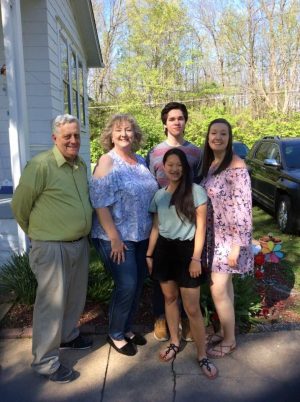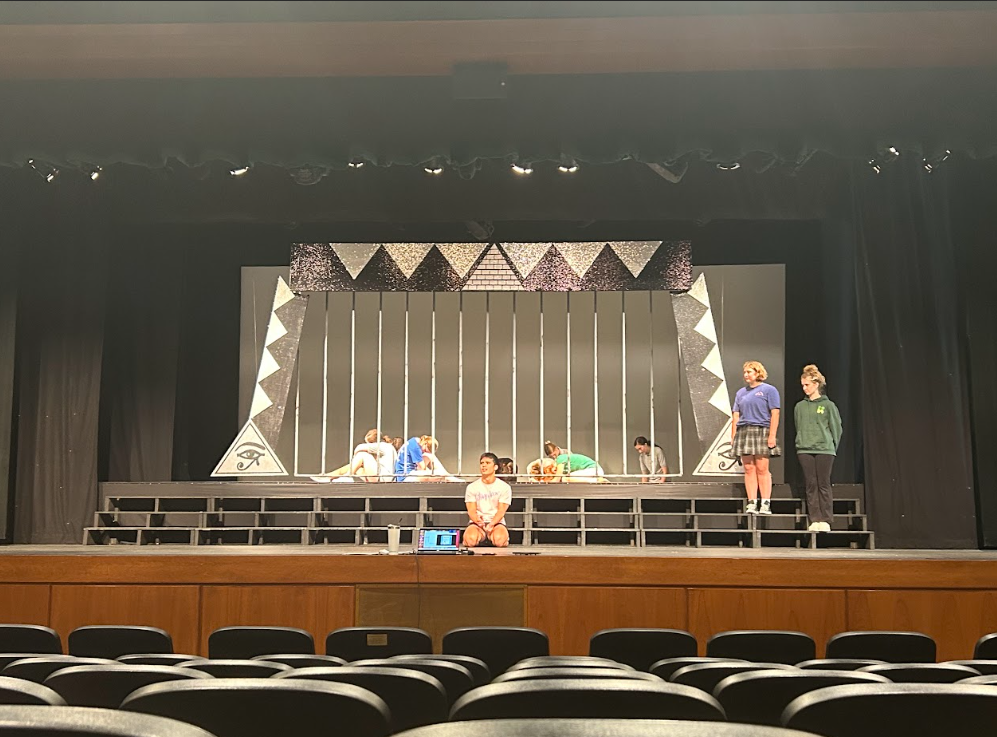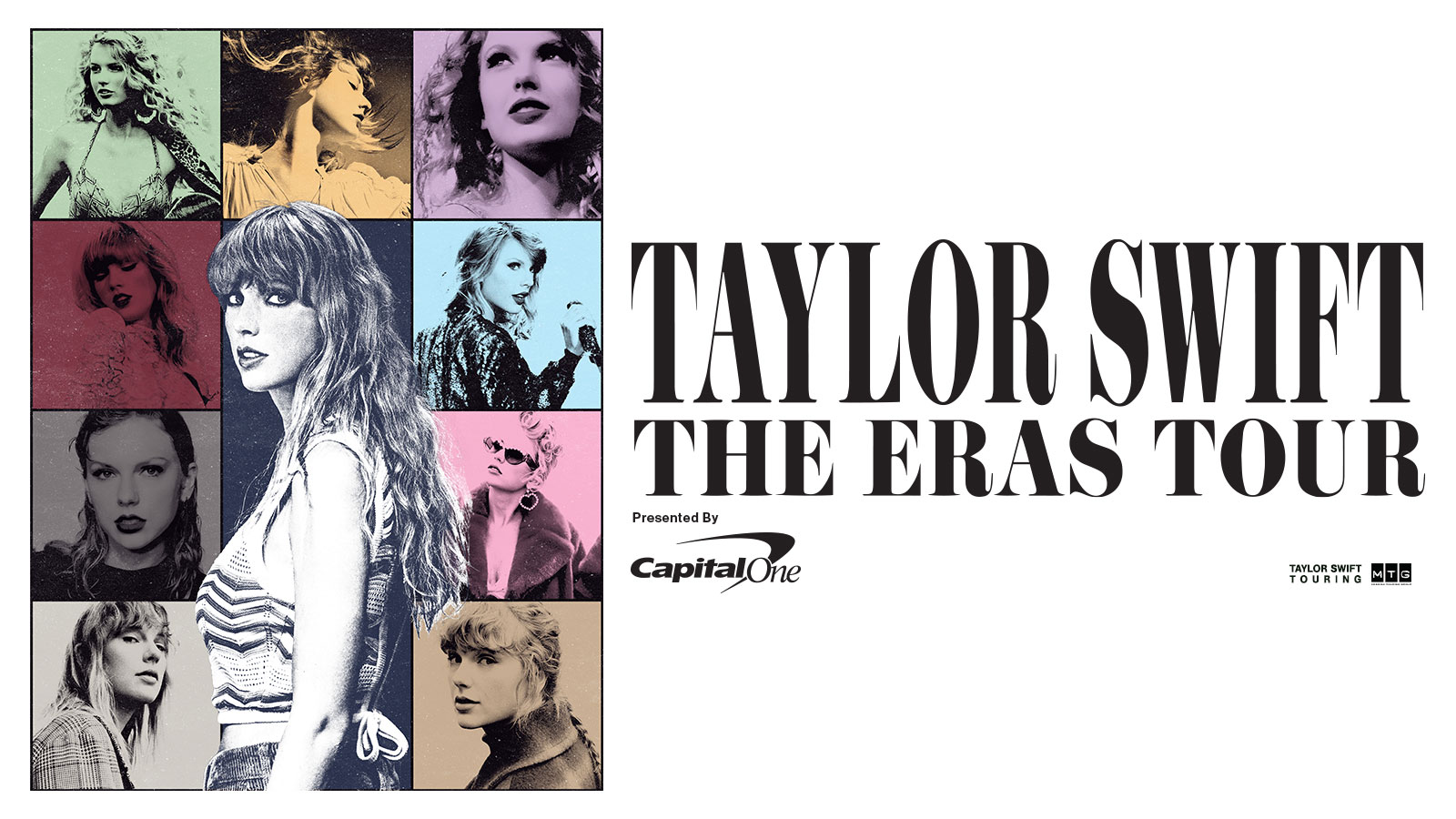Preparing for the Upcoming Presidential Election
Students who attended the 2019 Youth and Government convention were invited to register to vote on site.
October 8, 2020
Tuesday, November 3, 2020, marks the date of the presidential election between current President Donald Trump and Democratic nominee Joe Biden. While only a limited number of students at St. Joe are able to vote depending on their birthdays, many students under the age of 18 can still play a vital role in their personal understanding of the election as well as each candidate’s values and opinions for the future of the United States.
Below are six ways to get yourself involved and educated for the upcoming presidential election.
1. If you are able to vote, vote!
While this may seem like obvious advice, many young voters do not vote. Every single one of us has a voice, and each voice truly is heard through our votes; however, our voices will never be showcased if we choose not to vote. Our ability to vote can help change and determine the future of our nation. We are adults with a chance to finally have personal representation. By voting, we establish our independence and power to make our own decisions that can impact the future of the world. Especially in terms of beginning college, we now can help determine the future of the economy as we pay tuition, manage debt, and start living life on our own.
If you are old enough to vote and have not registered, you can register here: vote.gov/
In addition, if you do not know where to vote, you can personally locate your nearest poll location here: www.vote.org/polling-place-locator/
2. Educate yourself on politics.
Even if your age limits your ability to vote, it is never too early to learn about politics. Soon enough, you will be able to vote as well. Therefore, why not start now? Today, take advantage of the easy accessibility through cutting-edge technology that constantly surrounds us. Whether that be through a newspaper, a book, the internet, or television, we can learn about politics almost anywhere. However, make sure the news that you are consuming is credible and unbiased, especially if you are just not beginning. By focusing on credible sources, you can truly form your own personal beliefs. For example, one idea is to read news from foreign news stations such as www.bbc.com/news because it lacks the U.S. bias that would be seen from a company stationed in the U.S.
If independent learning seems troubling or difficult, consider taking a social studies course at St. Joe such as Current Events , Human Rights, or AP Government and Politics. These classes will definitely help educate you on the government policies and controversial issues in an impartial manner allowing you to form your own personal beliefs.
“Specifically for me, my Joe Talk [junior year] about racism gave me an entirely new perspective and personal insight into a well-known issue in America. While I was aware of the issue, my research gave me a special expertise in a specific subject that has helped me when looking into the political values for presidential nominees,” senior Grace Kertz explains, while reflecting on the Social Justice course at St. Joe.
3. Grow involved in issues you care about.
A simple way to get your voice and beliefs recognized, especially if you cannot vote, is by creating a petition. If successful, petitions can get taken to state representatives and affect political policies despite your age. For example, if climate change and being environmentally friendly is an important issue that you care about, get involved in fighting for change. To begin, you could join the Earth Angels club at St. Joe and participate in environmental service. Mark your beliefs early in life. By taking initiative now, you are forming your own political beliefs while sharing and helping others learn more about global issues as well.
4. Talk to family members and friends.
One major way to help form political beliefs, especially for young voters, involves political discussions with family and friends. A commonality today is that children believe and vote for who their parents tell them to, despite actually referencing their own personal beliefs. If your personal view is the same as your parents, there is absolutely no problem with that; however, if you simply vote the same as your parents because you are uneducated, then educate yourself! Ask questions to your family and friends. Try to get different opinions and perspectives. Take all these thoughts into consideration to help you form your own opinions. The best way to become a credible source is by actually knowing the issue. Oftentimes, those people closest to you can help you understand common topics today. However, in terms of political disagreements, remember to keep the St. Joe norms in your mind in order to carry out a healthy debate.
5. Use your talents to showcase issues.
Are you an aspiring writer, artist, or photographer? Or do you have a strong passion for soccer? Use your talents and hobbies to your advantage to help emphasize your beliefs. For example, the U.S. Women’s National Soccer Team wore rainbow jerseys for pride month in order to stand for equality for all people. While this was a highly publicized action, individuals can bring about just as much publicity or change. If you love to write, write an “I Believe” or argumentative essay on your personal beliefs and publish it. If you love photography, showcase powerful images of your beliefs. Never be afraid to share your opinions. After all, the United States was born for freedom. Despite how diverse your talents may be, there is always a way to incorporate your beliefs and values into your talents.
6. Pre-register to vote if you can.
While this may seem somewhat unnecessary as of right now, do it! It saves time in the future and ensures you are notified when you are able to vote. So, why not pre-register now? Take initiative for your future and get started now. It will keep you aware of future election dates and help you know that soon-enough you will have a voice in terms of politics.
“While I miss voting in the upcoming presidential election by nine days, I have already pre-registered to vote for the next election after I turn eighteen. I think it is very important to vote because as I grow up, I will truly begin to notice how my voice in elections and how policies personally affect me economically and socially,” senior Josie Tegethoff remarks.
In conclusion, despite your age, there are always ways to prepare for the election and get involved in politics to help change your future. Remember, your voice and your beliefs affect your future, but be sure to educate yourself.













